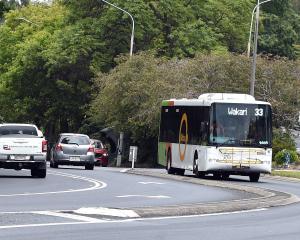
Fire and Emergency New Zealand personnel, both career and volunteer, across the country have adopted plans on how to deal with incidents involving people who are possibly infected with Covid-19 and that means wearing personal protective equipment.
In Otago and Southland those measures are already in place.
Fire and Emergency New Zealand Southland Assistant Area Commander Deane Chalmers said that the process for any response from career, volunteer, or rural firefighters was the same.
‘‘The calls all go to the same place and operators will be asking additional questions and that info is shared between agencies such as ambulance and police.’’
The measures were to protect staff, he said.
Mr Chalmers, who is stationed in Invercargill where firefighters are career, said that the personal protective equipment issued to all firefighters, both career and volunteer, was high tech and New Zealand firefighters were well equipped to deal with the threat of the coronavirus.
‘‘We know that in the future we will be dealing with people who are infected or potentially infected with Covid-19.’’
Senior Firefighter Mark Hurley, who is the safety, health and wellbeing representive for the Alexandra Volunteer Fire Brigade said volunteer firefighters would be wearing extra personal protective equipment to ‘‘protect ourselves, our colleagues and our families’’.
‘‘We may also ask you to also wear provided personal protective equipment or remain at a social distance while at emergencies.’’
He said it was important that when people called 111 for an emergency they passed on all the relevant information.
‘‘Please inform the operator if you or people around you are currently presenting flu-like symptoms or if you and your household are currently in quarantine.
‘‘This will allow us, ambulance crews and police to prepare before our arrival,’’ Mr Hurley said.











